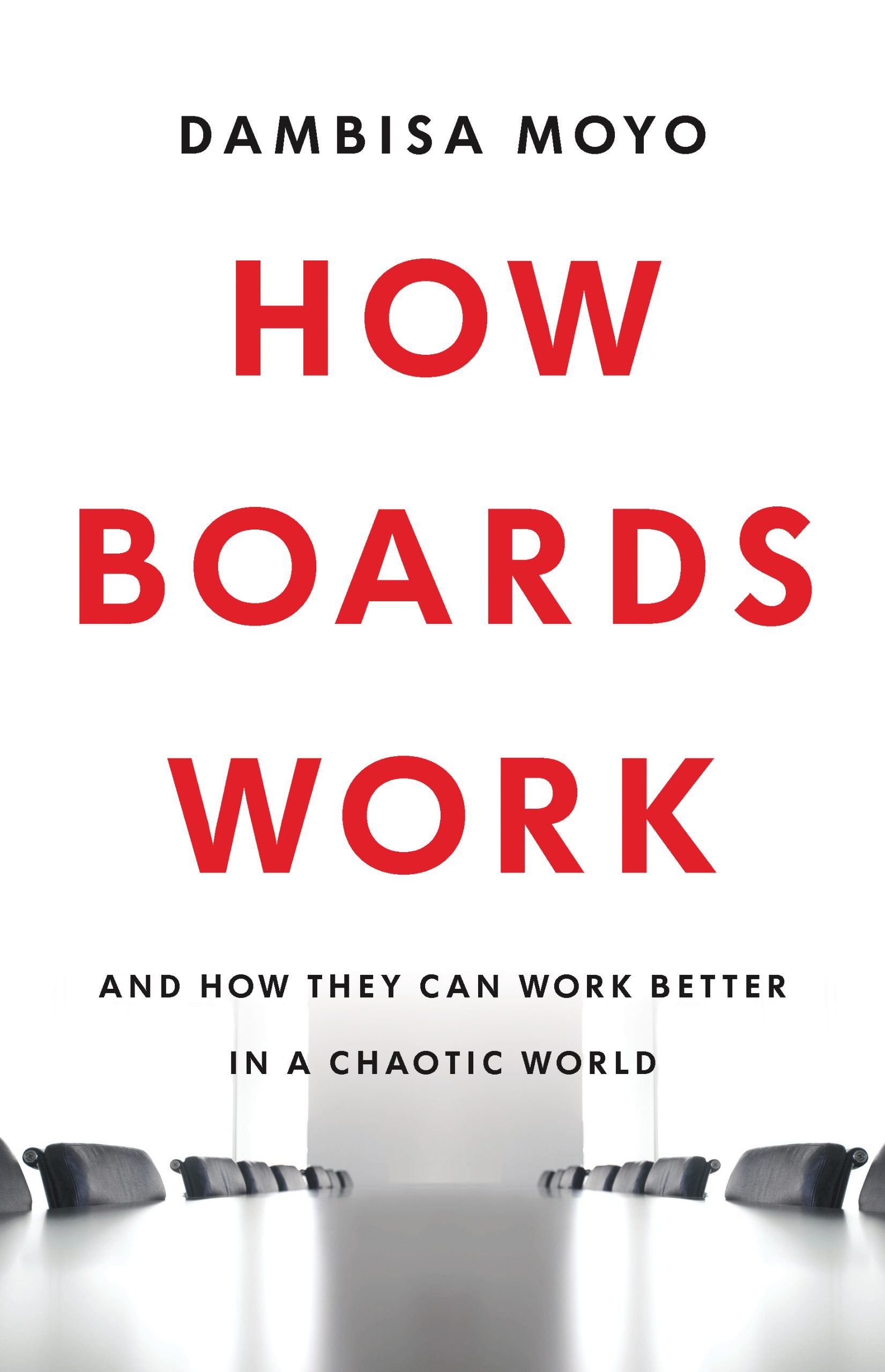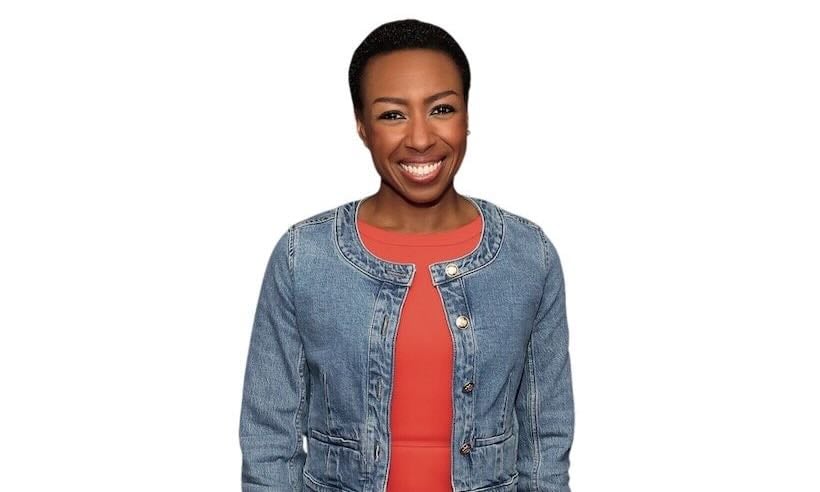Dambisa Moyo (pictured below) is an economist and political commentator known for clear, outspoken views on big and challenging topics. TIME magazine named her one of the 100 most influential people in the world, and she has just published her latest book, How Boards Work, and How They Can Work Better in a Chaotic World. Worth interviewed her in advance of her appearance at the Health + Wealth of America conference.
 How did you come to write about corporate boards? What made you want to focus on that?
How did you come to write about corporate boards? What made you want to focus on that?
It’s a little bit born out of ignorance. On occasion I’ve taught seminars at Harvard Business School, Stanford, NYU and elsewhere. I was surprised that business school students had no idea what boards do. I thought, “Well, wait a second, this is an important role.” Corporations in the United States, according to Fortune, employ [just under] 30 million people. Their revenues are two-thirds of the U.S. GDP. They are involved in innovation, they’re paying taxes, building infrastructure, creating jobs. And at the helm of all these corporations are this group of 12 people, the board, who have an important mandate and yet people didn’t seem to really understand that relationship.

What is a common mistake that a first-time board member might make?
Probably talking too much. And also, being too strident. The most important skill for board members is judgment, and it doesn’t scale. It’s hard to teach. People need to see different scenarios. If you show up in a boardroom, and you think you know the answer, you haven’t yet really appreciated the nuance of a lot of the challenges, whether it’s ESG or employees’ safety issues, operational issues, financial issues.
In the book you describe “a cultural revolution” that has hit the boardroom. What is that revolution and what’s causing it?
 The first evidence of there being some kind of a board structure goes back to the 1600s. And if you think about what the job and the mandate of a board is, we haven’t seen much change in 400 years with what exactly board structure is. When I talk about the cultural frontier, I’m talking about two aspects, the “non-negotiables,” things like excellence, professionalism, et cetera. A lot of companies have these in their value statement. But where the challenge has come to the board mandate is around this new cultural frontier, these more challenged societal issues.
The first evidence of there being some kind of a board structure goes back to the 1600s. And if you think about what the job and the mandate of a board is, we haven’t seen much change in 400 years with what exactly board structure is. When I talk about the cultural frontier, I’m talking about two aspects, the “non-negotiables,” things like excellence, professionalism, et cetera. A lot of companies have these in their value statement. But where the challenge has come to the board mandate is around this new cultural frontier, these more challenged societal issues.
Now we use ESG—environmental, social and governance issues—but it’s a whole range of things from climate change to pay equity to racial and gender diversity to issues around obesity, issues around gun control, data, privacy, worker advocacy—it’s a whole slew of issues. These really traditionally were the purview of government; corporations are now being asked to lead on these issues. There’s a lot more tension as we move from a financial shareholder world into a broader stakeholder capitalist approach.

You cite a study that indicates that a very large majority of boards are not satisfied with the culture in their corporations. If they recognize that there are problems, why don’t they fix them?
This is a great question because it’s true for a whole slew of things. These issues that I just outlined are very complicated. If they’re not dealt with in a sensitive, nuanced way, they can lead to suboptimal outcomes. For example, something like culture is now very much embedded into compensation, how we reward the CEO and other managers is very much now driven by how they’re addressing diversity, how they’re dealing with issues of climate change, etc.
But we should not lose sight of the trade-offs. Take the example of climate change: Nobody I know of disputes that the Earth is warming and that the Earth and the human beings are contributing to it, but at the same time, 1.5 billion people have no access to energy. So, we can’t just pursue an aggressive “defund fossil fuel companies” that is not a sustainable solution. Diversity is another one; you don’t want to fight inequality with inequality. We have to make sure that these things are balanced and transparent.
What role can a board play in terms of establishing culture? When I think of board members, I think of people who are pretty far removed from the day-to-day operations of a company. So how does a board begin to tackle some of these issues about the workplace itself?
I think that’s broadly an impression about the board. The truth of the matter is our mandate is very clear. We are expected to provide oversight on the strategy. We are expected to hire and fire the CEO, and we’re expected to provide oversight on cultural reform. We have the power and the levers to effect change. We also determine compensation. We have to approve it. We have to look at what those inputs are to remuneration.
When you think about these cultural issues, which are relatively new to boards, is there a tension between addressing those and what we think of as the more traditional role of boards, which is really more about profit and shareholder value?
If you look at the actual mandate of the board, which comes out of duty of care and duty of loyalty, these are legal points. The legal document says explicitly that our duty is to the financial shareholders, but the truth of the matter, now recognized by the Business Roundtable and elsewhere, is that the world has changed. We can debate why it has changed. There’s frustration with the efficacy of government, maybe not working as aggressively as it should in some of these areas. And people do feel like corporations, because of their size, because of their scale and imports, they have a bigger role to play. It’s also the asset owners—the pension funds and insurance companies. This is our money that we put to work. We want to see better outcomes in society, whether it’s education or health care vaccinations. So, I don’t see a split.
You talk about the possibility that liberal democracy might fade away, and that would have a dramatic change in the environment in which corporations operate. How should a company adapt to circumstances like that?
We have risk committees. We also have audit committees. All committees tend to look backwards. Pretty much no one predicted COVID, but institutions have not fallen over because we are thinking constantly about controls. We’re testing them on a regular basis. It is true that we’ve only had liberal democracy and market capitalism for only 1 percent of human history. So, my job as a board member is to road test, not just democracy and market capitalism, but a whole array of things that we assume when we’re running businesses. We assume that supply chains will work. We assume that employees will show up at work and they will be able to function. We [assume] that we won’t have a cyber problem.
Part of my job is to road test and make sure that assumptions are correct. And if you’re looking just at the data, the fact that we’ve only had democracy [for] 1 percent of time means that it is a risk that I have to mitigate for. And it wouldn’t be the first time that companies have been forced to operate in different circumstances in a more deglobalized world. Think about the 1930s in the United States. We probe and make sure we can operate if the world were to turn tomorrow and become much more balkanized and deglobalized.
Do you see a big difference between the way that corporate boards behave in the United States versus other countries?
There are differences. In the United Kingdom, the chairperson role is split from the CEO role; here in the United States the CEO/chairperson tends to be the same person. The German board has a two-tiered structure, where the board has representation from the employee base. There’s no right or wrong answer.
My last question is about nonprofits. Are the qualities that make a good corporate board similar to the qualities that make a good nonprofit board, or does that require a different outlook and skill set?
Fundamentally, I think there are a lot of similarities in terms of wanting to make sure you’ve got controls, wanting to mitigate for risk, obviously overseeing strategy and picking the leaders for the organization. I was struck by something that author Jim Collins said many years ago that NGOs have a tougher role because they have a lot of vested interests where there are very few metrics around their utility function. This is now where we’re focusing on corporate boards, we’re trying to figure out what sort of new metrics will best capture the risks as well as the opportunities in areas of ESG. I think both schools are actually coming closer and closer together on metrics.







